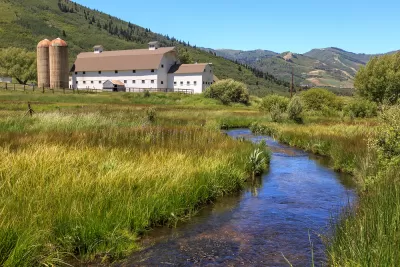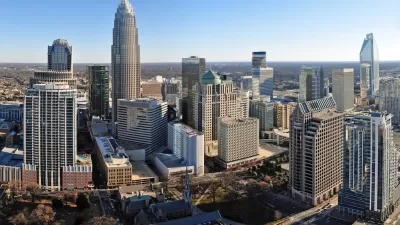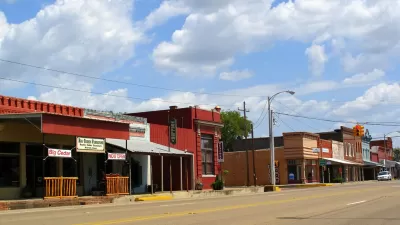The pitting of cities and rural communities against one another is the wrong approach. Instead, policies that help cities thrive will benefit rural areas in the long run.

Nathan Arnosti and Amy Liu take a closer look at the relationship between urban and rural areas. They argue for a move beyond the idea of the urban-rural divide, a concept supporting the notion that bolstering cities means that rural communities lose out.
"Rather than see rural America as existing in isolation from urban centers, or characterize the two sets of communities as locked in a zero-sum game for economic growth, we should recognize that rural America’s economic success is linked with that of America’s cities," write Arnosti and Liu.
The well-being of rural areas is influenced by cities in several ways, they say. Rural areas benefit when cities provide more state revenue than they use, and states with large urban populations are less dependent on federal investments. In addition, cities provide rural communities and residents with access to economic, labor, and educational opportunities.
Arnosti and Liu say that strengthening the links between urban and rural areas is important. "In fact, one of the best ways to help rural America may involve helping cities: supporting a distributed network of economically vibrant small and mid-sized cities across the United States."
They advocate for economic planning at the local level—with a focus on industry clustering rather than efforts to attract particular large companies. In addition, they encourage policies that will reduce the economic gaps between urban and rural areas, including educational and training programs that prepare workers for the modern economy.
FULL STORY: Why rural America needs cities

Alabama: Trump Terminates Settlements for Black Communities Harmed By Raw Sewage
Trump deemed the landmark civil rights agreement “illegal DEI and environmental justice policy.”

Study: Maui’s Plan to Convert Vacation Rentals to Long-Term Housing Could Cause Nearly $1 Billion Economic Loss
The plan would reduce visitor accommodation by 25% resulting in 1,900 jobs lost.

Planetizen Federal Action Tracker
A weekly monitor of how Trump’s orders and actions are impacting planners and planning in America.

Waymo Gets Permission to Map SF’s Market Street
If allowed to operate on the traffic-restricted street, Waymo’s autonomous taxis would have a leg up over ride-hailing competitors — and counter the city’s efforts to grow bike and pedestrian on the thoroughfare.

Parklet Symposium Highlights the Success of Shared Spaces
Parklets got a boost during the Covid-19 pandemic, when the concept was translated to outdoor dining programs that offered restaurants a lifeline during the shutdown.

Federal Homelessness Agency Places Entire Staff on Leave
The U.S. Interagency Council on Homelessness is the only federal agency dedicated to preventing and ending homelessness.
Urban Design for Planners 1: Software Tools
This six-course series explores essential urban design concepts using open source software and equips planners with the tools they need to participate fully in the urban design process.
Planning for Universal Design
Learn the tools for implementing Universal Design in planning regulations.
Caltrans
Smith Gee Studio
Institute for Housing and Urban Development Studies (IHS)
City of Grandview
Harvard GSD Executive Education
Toledo-Lucas County Plan Commissions
Salt Lake City
NYU Wagner Graduate School of Public Service





























